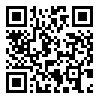مجله رویش روانشناسی از دادن گواهیهای کاغذی معذور است. لطفا تقاضا نکنید. همه گواهی ها در صفحه شخصی کاربران موجود است.
year 12, Issue 7 (autumn 2023 2023)
Rooyesh 2023, 12(7): 63-72 |
Back to browse issues page
Download citation:
BibTeX | RIS | EndNote | Medlars | ProCite | Reference Manager | RefWorks
Send citation to:



BibTeX | RIS | EndNote | Medlars | ProCite | Reference Manager | RefWorks
Send citation to:
Maleki Kaliani V, Lesani M, Hosseini H, Razaghi S. (2023). The Role of Emotion Regulation Skills, Ambiguity Tolerance and Teacher Affective support in Students' Academic Self-Efficacy. Rooyesh. 12(7), 63-72.
URL: http://frooyesh.ir/article-1-4717-en.html
URL: http://frooyesh.ir/article-1-4717-en.html
1- Master of Educational Science, Shahid Bahonar University, Kerman, Iran.
2- Associate professor of Educational Science, Shahid Bahonar University, Kerman, Iran. ,mlesani@uk.ac.ir
3- Master of Educational Science, Kharazmi University, Tehran, Iran.
2- Associate professor of Educational Science, Shahid Bahonar University, Kerman, Iran. ,
3- Master of Educational Science, Kharazmi University, Tehran, Iran.
Abstract: (1234 Views)
The purpose of the present study was to predict Academic Self-Efficacy in students based on emotion regulation strategies, ambiguity tolerance, and teacher affective support. The research method was descriptive -correlation. The study population included all high school boys students of Kermanshah city in 2021-2022 among them 195 students were selected as a sample by multi-stage random cluster sampling. Research questionnaires included: academic self-efficacy questionnaires (SES, Patrick et al, 1977), emotion regulation skills questionnaires (ERS, Shields, Cicchetti, 1997), ambiguity tolerance questionnaires (ERS, Freston et al, 1994), and teacher Affective support questionnaires (TASQ, Sakiz, 2007). Data were analyzed by Pearson correlation coefficient and multiple regression. The results of multiple regression showed that ambiguity intolerance, teacher Affective support, and emotion regulation skills s can explain the 0.40 variance in academic self-efficacy in students (P <0.001). In general, it can be said that emotion regulation strategies, tolerance of ambiguity, and emotional support of the teacher predict students' academic self-efficacy, and through them, students' self-efficacy can be determined.
Keywords: Academic Self-Efficacy, Ambiguity Tolerance, Emotion Regulation Skills, Teacher Affective support.
Type of Article: Research |
Subject:
Educational Psychology
Received: 2023/07/3 | Accepted: 2023/08/4 | ePublished: 2023/10/2
Received: 2023/07/3 | Accepted: 2023/08/4 | ePublished: 2023/10/2
Send email to the article author
| Rights and permissions | |
 |
This work is licensed under a Creative Commons Attribution-NonCommercial 4.0 International License. |






